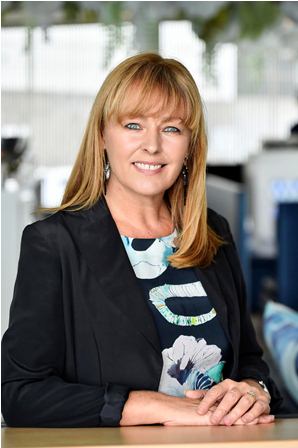Flickerfest Director Bronwyn Kidd
The 25th Flickerfest kicks off tomorrow night at a precarious time for the short-form filmmaker.
Sydney's Metro Screen has closed, and just a couple of days ago Australia's screen guilds roundly condemned the latest cuts to Screen Australia.
Long-time Flickerfest director Bronwyn Kidd agrees: "[the cuts] should be condemned".
Echoing Malcolm Turnbull's worthy but now rather disingenous-looking line that "culture is at the very essence of who we are", Kidd told IF that the "screen industry is a an incredibly valuable part of our national storytelling.
"It's very difficult for a country like Australia to continue to produce quality cinema when there's such enormous pressure from Hollywood. When I look at the incredible talent that comes out of the short film industry, I'm astounded every year."
"I've been doing Flickerfest for nineteen years now. If the films got worse every year I wouldn't be continuing to do what I do!"
Kidd notes how much higher production values are now than when she started, but points out that gloss isn't everything. Two things stand out in the evolution of the country's short filmmaking over the course of her tenure.
"I think as Australians we're not colloquial in our storytelling, and certainly I'm not looking for colloquial stories. I'm looking for stories that can be universal. Maybe ten years ago I was seeing a lot of colloquial stuff and thinking: 'oh, that's a really local in-joke, that wouldn't work in Germany or the US'.
"I don't think that's the case anymore. I think Australian filmmakers are making their films for an international audience. They're much more festival savvy than they used to be. They're aware that the success of their film isn't just a screening at the pub with friends. They're aware that they have to be reaching out to international festivals and that there is a pathway for filmmakers".
That pathway, of course, is one that hasn't necessarily been working for the country's female filmmakers, a fact which Kidd acknowledges.
"We've always had a lot of films entered by women at Flickerfest. I think the problem is not at this level. We've got 21 female directors out of 53 films in the Australian competition [this year]. I didn't set out to say 'ok, I must have 50% female directors', because I don't program like that. I program according to the films that come through and I look at them on their merit."
"The problem's the oportunity beyond this stage. Going on to make films and have a career and being picked up by an agency. So many directors work in TVC's, that's their bread and butter, and that seems to be the area where there's not so many female directors".
"Hopefully the proactive steps that Screen Australia has made in this area, with Screen NSW and the ADG's backing, will make a difference. Hopefully in five years' time I can look at the 21 female directors from Australia coming through Flickerfest this year and see that their ability to get from here to there – from the creative to the commercial – has been made easier".
Kidd sees the diversity deficit getting better, too.
"Way back when, there were some female directors, but I wasn't seeing Asian-Australians, I certainly wasn't seeing the incredible indigenous filmmakers coming through. Now we're seeing a lot more voices reflecting the true nature of who we are as Australians. And not just the mainstream, free-to-air version of Australia that we generally see".
Some of Flickerfest's most distinguished alumni, such as Cate Shortland, Jennifer Kent, David Michod and Wayne Blair, will have their early shorts screened this year as part of a 25th anniversary retrospective. Kieran Darcy-Smith will preside over the festival's Flickerlab panel.
This year's fest aims to unearth their heirs.
Flickerfest launches tomorrow night and runs until January 17.


